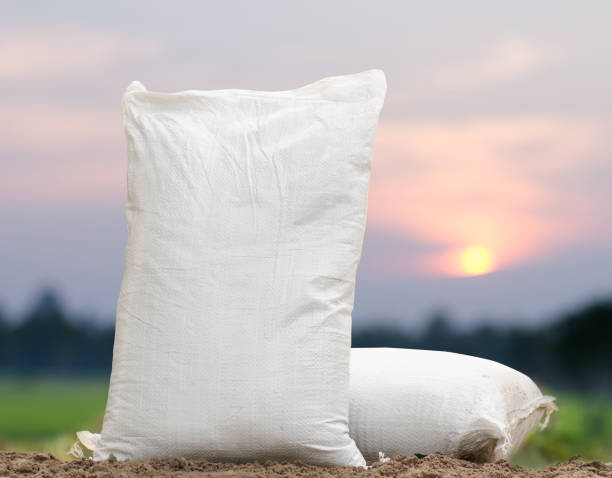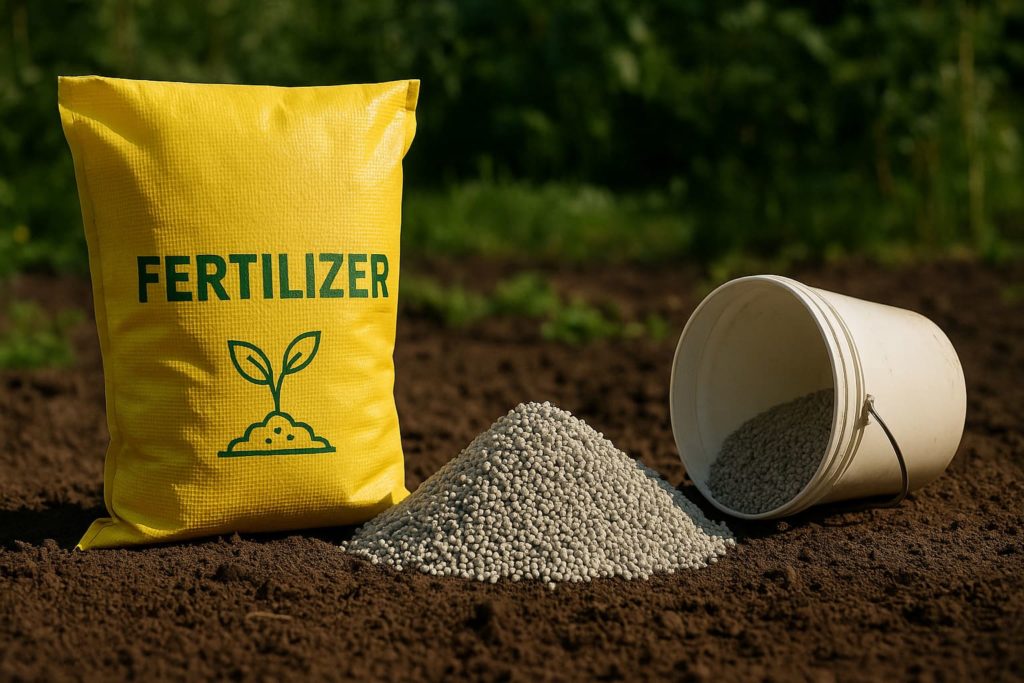When it comes to fertilizing your garden, one of the most important decisions you’ll face is whether to use fertilizer bags or bulk fertilizer. Both options have their pros and cons, and understanding the differences can help you choose the best solution for your specific gardening needs.
In this blog post, we’ll compare fertilizer bags and bulk fertilizer, highlighting their respective benefits, drawbacks, and best-use scenarios. Whether you’re a casual gardener or a professional landscaper, knowing the right choice can enhance the health and growth of your plants.
What is Fertilizer?
Before diving into the debate between fertilizer bags and bulk fertilizer, it’s important to understand what fertilizer is and why it’s essential for your garden. Fertilizers are substances that provide essential nutrients to plants, promoting healthy growth and development. The primary nutrients found in fertilizers are nitrogen (N), phosphorus (P), and potassium (K), along with secondary and micronutrients like calcium, magnesium, sulfur, iron, and more.
These nutrients are crucial for various plant processes, such as photosynthesis, root development, and overall vigor. Choosing the right fertilizer ensures that your plants get the proper nutrients they need to thrive.
Fertilizer Bags: Convenience and Versatility
Fertilizer bags are pre-packaged containers of fertilizer, often sold in various sizes ranging from small bags for home gardeners to larger sacks for larger gardens or commercial use. These bags contain dry or granular fertilizer, which can be applied directly to the soil.
Advantages of Fertilizer Bags
Fertilizer bags provide a convenient solution for gardeners, offering several benefits that make them particularly useful for smaller to medium-sized gardens. Whether you’re a hobby gardener or simply maintaining your lawn, fertilizer bags are an easy, ready-to-use option. Below are the key advantages of choosing fertilizer bags for your garden.

1. Easy to Handle and Store
One of the biggest advantages of fertilizer bags is convenience. They are easy to carry, store, and apply, making them ideal for small to medium-sized gardens. You don’t need any special equipment or containers, and the fertilizer is ready for use straight out of the bag.
2. Precise Measurements
Fertilizer bags often come with clear instructions on how much to apply per square foot or area of your garden. This precision helps you avoid over-fertilizing, which can harm your plants, or under-fertilizing, which can stunt their growth.
3. Variety and Specialization
Fertilizer bags come in a wide range of formulations tailored to different types of plants. Whether you have vegetables, flowers, or lawns, you can find a fertilizer bag that meets the specific needs of your plants. Additionally, you can choose between organic or synthetic fertilizers, allowing you to align your gardening practices with your values.
4. Less Risk of Contamination
Since the fertilizer is pre-packaged, the risk of contamination is minimal. The bags are sealed and protect the product from moisture, air, and pests, ensuring the fertilizer stays effective until you use it.
Disadvantages of Fertilizer Bags
While fertilizer bags have several benefits, there are also some drawbacks to consider before making a purchase. Understanding these limitations will help you decide if fertilizer bags are the right option for your garden.
1. Cost-Effectiveness
While fertilizer bags offer convenience, they tend to be more expensive per unit of fertilizer compared to bulk options. The cost per pound can be higher, especially when buying smaller quantities for larger gardens.
2. Limited Quantities
Fertilizer bags are typically available in fixed quantities, which may not always align with the size of your garden. If you need a large amount of fertilizer, you may have to buy several bags, which can become cumbersome and costly.
3. Packaging Waste
Another drawback of fertilizer bags is the environmental impact of packaging. Since most bags are made of plastic, they can contribute to waste if not properly recycled.
Bulk Fertilizer: Economical and Flexible
Bulk fertilizer refers to large quantities of fertilizer purchased in loose form, typically sold by weight or volume. It is often available at garden centers, co-ops, or directly from manufacturers. Bulk fertilizer is typically stored in large containers or bins and can be applied using spreaders or other equipment.
Advantages of Bulk Fertilizer
When it comes to large-scale gardening, farming, or landscaping projects, bulk fertilizer presents a range of significant advantages. Whether you’re managing a commercial garden or a large lawn, bulk fertilizer can offer practical benefits that smaller, packaged fertilizers simply can’t match. Below, we explore the key benefits of bulk fertilizer and why it’s often the preferred choice for those who need large quantities of nutrients for their plants.
1. Cost-Effective for Larger Gardens
For large gardens, lawns, or commercial landscaping projects, bulk fertilizer can be a far more cost-effective option. The price per pound or kilogram is generally much lower when purchasing fertilizer in bulk, as you are paying for the product without the added cost of packaging and distribution.
2. Customizable Quantities
When purchasing bulk fertilizer, you have the flexibility to buy exactly the amount you need. Whether you need a small or large quantity, bulk fertilizer allows you to get the precise amount for your garden. This is especially helpful if you have an expansive garden or agricultural land.
3. Reduced Packaging Waste
Since bulk fertilizer is sold without individual packaging, there is less waste generated. If you are environmentally conscious, this can be a significant benefit as you’re reducing your contribution to plastic packaging waste.
4. Ideal for Large-Scale Farming or Landscaping
Bulk fertilizer is often the preferred choice for professional landscapers and farmers who need large quantities of fertilizer. It is an ideal solution for those who have extensive planting areas and need to apply fertilizer frequently.
Disadvantages of Bulk Fertilizer
While bulk fertilizer offers numerous advantages, there are some potential drawbacks to consider before making the switch. It may not be suitable for everyone, particularly those with smaller gardens or limited space. Below, we’ll dive into the main challenges associated with bulk fertilizer so you can make a more informed decision.
1. Requires Storage Space
Bulk fertilizer takes up much more space than pre-packaged fertilizer bags. You’ll need a designated area to store the loose fertilizer, and it may require special containers to keep it dry and protected from pests or contamination. If you have a small storage area, this might not be the most practical option.
2. Potential for Over-Application
With bulk fertilizer, there’s a higher risk of over-application if you don’t have the right tools to measure the fertilizer accurately. It can be more challenging to ensure that you’re applying the correct amount without precise instructions and measurements, especially if you’re using manual methods.
3. Not Ideal for Small Gardens
Bulk fertilizer is typically best suited for large areas, as purchasing in bulk may not be necessary for smaller home gardens. For a small garden, the storage and application of bulk fertilizer can become more of a hassle than it’s worth.
Which Option is Right for Your Garden?
When deciding between fertilizer bags and bulk fertilizer, consider the following factors:
1. Size of Your Garden
- For Small to Medium Gardens: Fertilizer bags are likely the better option. They are easy to handle, store, and apply, and you won’t need large quantities.
- For Large Gardens or Farms: Bulk fertilizer is more economical and efficient for large spaces where you need significant amounts of fertilizer.
2. Budget
- If Cost Is a Concern: Bulk fertilizer offers the best value for larger areas, as it reduces the price per unit. If you’re on a budget and need a large amount, bulk is likely the most cost-effective option.
- For Smaller Budgets: Fertilizer bags might be the better choice since they offer more manageable quantities and lower initial investment.
3. Environmental Considerations
- If You’re Environmentally Conscious: Bulk fertilizer can reduce packaging waste, making it a better option if sustainability is important to you.
4. Convenience and Ease of Use
- For Convenience: Fertilizer bags offer more straightforward application with clear instructions on the label. If you don’t want to deal with measuring and storage, bags are likely the more convenient choice.
- For Flexibility: Bulk fertilizer can be more flexible for those who need to tailor the amount they apply. However, it requires proper storage and tools for precise application.
Read Also : Fertilizer Packaging Bags and Their Role in Preventing Contamination: Best Practices
Conclusion
The decision between fertilizer bags and bulk fertilizer ultimately depends on your gardening needs, the size of your garden, and your budget. Fertilizer bags offer convenience, precise measurements, and a variety of options, making them ideal for small to medium-sized gardens. On the other hand, bulk fertilizer is perfect for large-scale projects or commercial gardening, offering a cost-effective and flexible solution for those who need significant quantities.
By understanding the benefits and drawbacks of each option, you can make an informed choice that suits your gardening practices and ensures your plants get the nutrients they need to thrive.
